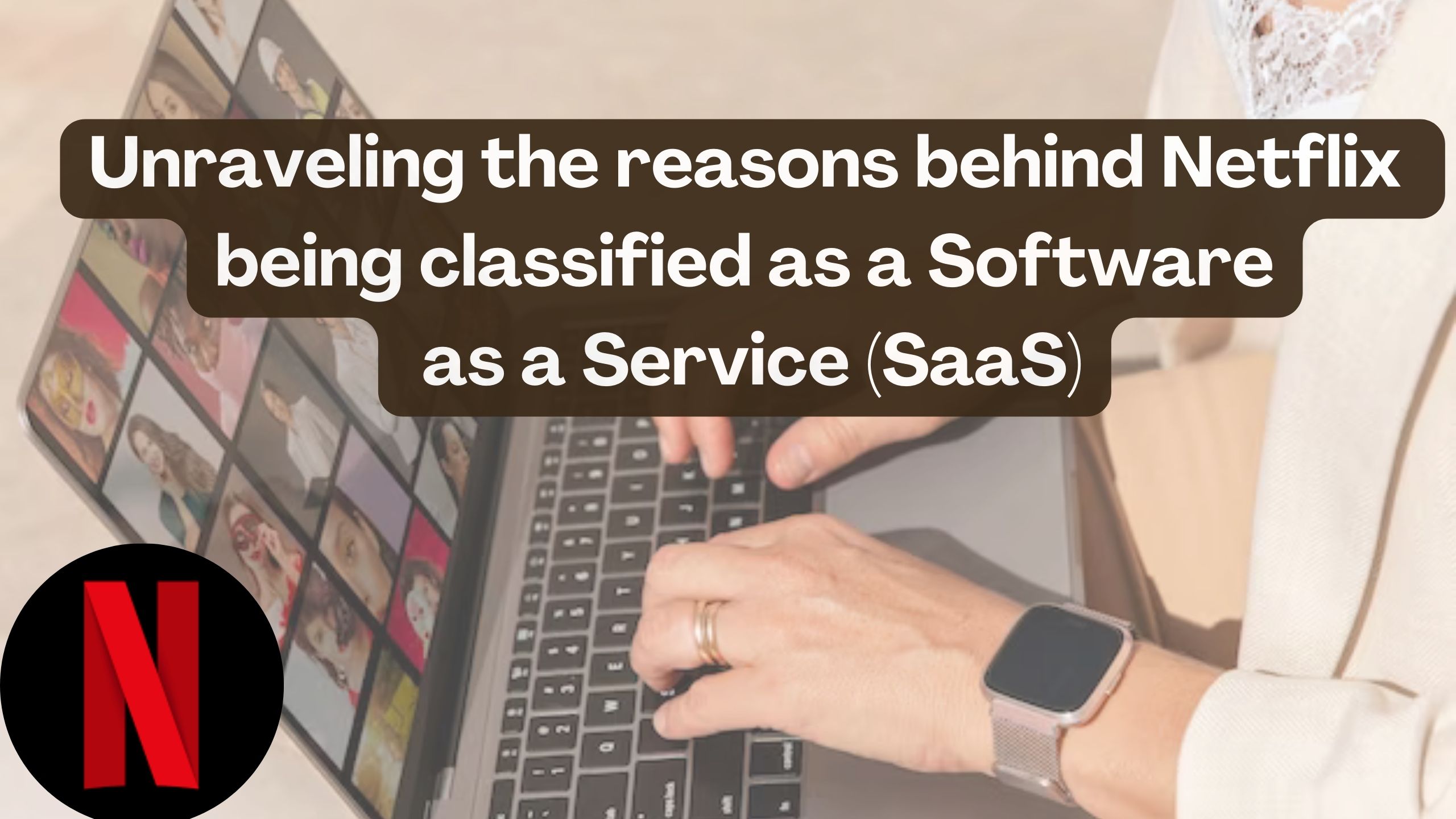Unraveling the reasons behind Netflix being classified as a Software as a Service (SaaS)
-


Unraveling the Reasons Behind Netflix Being Classified as a Software as a Service (SaaS)
In the era of digital transformation, Netflix has become synonymous with streaming entertainment. Beyond its role as a content provider, one might wonder why Netflix is often categorized as a Software as a Service (SaaS). Let’s delve into the intricacies of Netflix’s business model, exploring the reasons behind its classification as a SaaS and understanding the broader landscape of SaaS products.
Netflix: More Than a Streaming Platform
1. On-Demand Streaming
- Netflix’s Core Offering: At its core, Netflix provides on-demand streaming services, allowing users to access a vast library of movies, TV shows, documentaries, and original content at any time.
2. Subscription-Based Model
- Recurring Payments: Netflix operates on a subscription-based model, where users pay a monthly fee for unlimited access to content. This aligns with the key characteristic of SaaS—recurring payments for software access.
3. Cloud-Based Infrastructure
- Utilizing Cloud Technology: Netflix leverages cloud computing infrastructure for content delivery. This cloud-based approach mirrors the scalable and flexible nature of SaaS solutions.
4. Personalized User Experience
- Data-Driven Recommendations: Netflix employs advanced algorithms to analyze user preferences and provide personalized content recommendations. This data-driven approach aligns with the analytics and customization aspects often found in SaaS products.
5. Continuous Updates and Improvements
- Iterative Development: Similar to SaaS platforms that undergo continuous updates, Netflix constantly enhances its platform, introducing new features, improving streaming quality, and refining the user interface.
The SaaS Landscape: Diverse Solutions for Varied Needs
While Netflix is a prominent example of a SaaS offering in the entertainment sector, the broader SaaS landscape encompasses a multitude of solutions across various industries. Here are some noteworthy SaaS products that cater to diverse needs:
- SalesforceCRM Excellence: Salesforce is a leading customer relationship management (CRM) SaaS platform, empowering businesses to manage customer interactions, sales, and service in one unified platform.
- Microsoft 365Productivity Suite: Microsoft 365 is a comprehensive suite of SaaS tools, including Word, Excel, PowerPoint, and collaboration tools like Teams, facilitating seamless productivity and collaboration.
- ZoomVirtual Communication: Zoom exemplifies SaaS in the communication space, offering virtual meetings, webinars, and collaboration features.
- SlackTeam Collaboration: Slack provides a SaaS solution for team communication and collaboration, streamlining communication channels and enhancing teamwork.
- HubSpotInbound Marketing and Sales: HubSpot is a SaaS platform offering tools for inbound marketing, sales, and customer service, supporting businesses in their growth strategies.
Conclusion
In conclusion, Netflix’s classification as a Software as a Service (SaaS) stems from its subscription-based, cloud-powered, and continually evolving nature. As we unravel the reasons behind Netflix’s SaaS categorization, it’s essential to recognize the diversity within the SaaS landscape, with solutions catering to various business needs.
For those keen on exploring and managing their SaaS stack effectively, platforms like Subscribed.FYI offer valuable insights and exclusive deals on a wide range of SaaS tools. By simplifying decision-making and centralizing information, Subscribed.FYI aligns with the mission of empowering users to navigate the complexities of SaaS tools and expenses.
Relevant Links:








